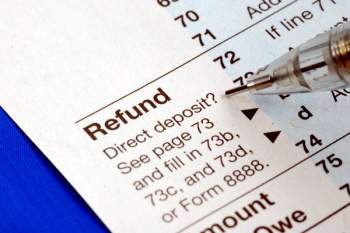
New Jersey Tax

FULL List to New Jersey Tax Forms
Individual Income Tax Forms
Form NJ-1040 Income Tax Resident Return
Form NJ-1040NR Income Tax Nonresident Return
Corporate Income Tax Forms
Form CBT-100 Corporation Business Tax Return
Form CBT-100S S Corporation Business Tax Return
Form ST 4 Exempt Use Certificate
Sales Tax Forms
Online Sales and Tax Filing and Payment Services
Property Tax Forms
Form PT-10 Return of Tangible Personal Property Used in Business
Form PTD-SI 250 Real Property Tax Deduction Supplemental Income
Form RTF-3 Claim for Refund - Realty Transfer Fee
Form Annual Claim for Real Property Tax for Seniors
Form Property Tax Deduction Claim by Veteran
Form Claim for Property Tax Exemption for Disabled Veterans
Form EOZ-1 Application for Real Property Exemption
Upon beginning the process of dealing with New Jersey income tax, one must be aware that this particular state maintains a plethora of specifications, most of which fall under the major categories of personal income, property taxes, sales tax, and corporation business tax. Each of these areas are also accompanied by various New Jersey tax forms.
Gross Income Tax
Rates following the 1st of January 2004 reside within the area of from 1.4% to 8.97%. From 2001 to the present, filing "thresholds" are left at a level of $10,000 or less within one calendar year when concerning individual filers and married persons filing separate from each other. $20,000 or less is the threshold for married couples filing together as well as surviving spouses.
A modification as of January 2007 makes any reference to a spouse as equal to that of a partner that resides in a civil union, as is now recognized according to New Jersey state law. New Jersey income tax also places exemptions on each individual taxpayers as well as their dependents and taxpayers 65 years of age and older.
Amounts range from $1,000 to $1,500 each. Additional monetary considerations may also be incurred if the dependent is attending a college institution full time.
Deductions are available for situations such as payment of alimony, medical expenses covered wholly by the individual taxpayer, property taxes, and primary care providers practicing within 5 miles of a "health enterprise zone."
Withholding requirements also exist in New Jersey income tax law, which specify that employers or others who withhold taxes have to file returns of tax withheld each quarter of the current year. In addition, they will be expected to send or remit tax during prescribed periods of time that may be as often as on a week to week basis.
Property Tax
Prior to going forward with the confusing nature of property taxes within the state of New Jersey, one must be cognizant of how value is actually gauged in accordance with tax law. In general, New Jersey statutes state that the "standard of value" be the most genuine value of the property in question. This would be the value that any assessor would deem as its potential price if the property were to go up for sale.
According to the decisions made by each New Jersey County, taxation of property is at 100%. Contributing factors to the assessment of value include that of the economy, government, location, and its physical characteristics. The economy references what monetary considerations accompany the maintenance of such a property while government considerations consist of public services such as the fire department, and other rules attached to the locale.
When assessing the location, aspects such as the area's weather, its waters, and its communities are examined. The final examination of the properties physical characteristics consists of its overall structure. Upon assessment the appropriate taxes will be placed. Taxpayers may also choose to pursue an appeal of their property's tax assessment if they deem it in error.
Property tax exemptions also occur in terms of New Jersey income tax law. Both the veterans and their surviving spouses and senior citizens/disabled persons qualify for such exemptions. In order for veterans to qualify, they must have been "honorably" discharged from the military, and their surviving spouse must have remained unmarried and single.
Both parties must have been a property owner as well as a resident of the state as well. Deductions include that of $250 per year of property ownership. In order for senior citizens to apply, they must be of the age of 65 and older, or as a disabled person, totally disabled. Both must have been a legal resident of the state for at least one year immediately preceding application.
This is the same for the amount of time they must have owned the property as well. In addition, their income may not exceed $10,000 within the year by which deduction is sought after. Individuals who may garner a total property tax exemption would be veterans with permanent and whole disability. In addition to specifications set forth by prior exemptions already stated, certification must also be acquired by the "US Department of Veteran Affairs."
Sales and Use Tax
According to New Jersey income tax laws, both sales and use tax must accompany retail transactions such as that of property, production, maintenance, and reparation. In addition a "compensating" use tax is placed upon taxable merchandise that may have been either procured without a sales tax or a tax rate below that of the state's. Individuals and companies who are legally required to collect sales tax must file the appropriate New Jersey tax forms, such as that of a "Business Registration Application."
Following this filing, they will receive sales tax collection authority in the form of certification, which will be shown in the appropriate line of vision of all that enter your place of business. In addition to exemptions on clothing, some also exist on foods procured for "human consumption." The state's current sales tax rate is that of 7%.
Corporation Business Tax
This tax is placed upon corporations who wish to operate under New Jersey state law. In addition foreign corporations may imposed this tax if they desire to have their "corporate charter" within the state, such as the exercising of their business-related operations. It is based on the "net" income of the corporation within the period of each calendar year attached to their operations, such as is specified as their first day of activity.
Corporations who are exempt from this tax include agricultural associations, nonprofit cemetery corporations, and sewage/water corporations. The rate that New jersey income tax law sets forth is that of 9% of the corporation's whole net income or the percentage that is attained from the state. Minimum tax amounts will, then, vary depending upon your profits for the year.
NEXT: New Mexico State Tax





















